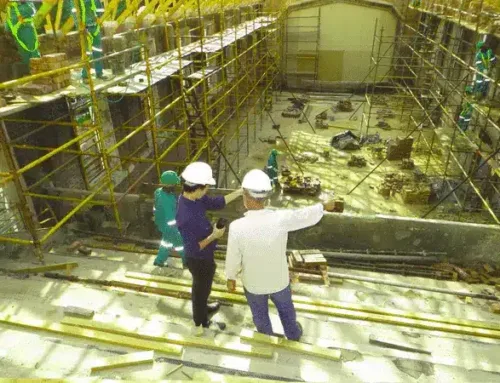In a fast-moving, rapidly evolving commercial real estate marketplace, investors are always looking for new ways to optimize opportunities. Successfully acquiring commercial real estate requires thorough due diligence to discover the vital information that may not be immediately available or apparent when evaluating a property or portfolios’ value. Hidden details about a property can be catastrophic to the financial merits of an otherwise profitable deal, transforming a transaction into an expensive mistake. This article discusses due diligence for real estate, what it is, why it’s essential, and what it comprises.
Related: Property Rezoning: What You Need To Know
How Due Diligence Works For Real Estate
Real estate due diligence aims to comprehensively understand the vital factors of property, financing, compliance, and seller obligations to minimize and mitigate financial concerns. Prospective buyers need to closely examine potential liens, zoning restrictions, and possible encroachments on the property in question. To determine necessary repairs and their costs, existing structures must be inspected fully. Prospective buyers must establish whether or not they will retain legacy liabilities from previous owners’ legal and regulatory violations. If the property is mostly financed, buyers need to account for their ability to make payments to the lender successfully.
The majority of sophisticated commercial real estate investors believe in detailed due diligence before signing a contract. Another option is to be scrupulous in the contract regarding due diligence the buyer needs to undertake and the effort necessary, which also compels the seller to deliver essential documents expeditiously. Some discoveries may negatively impact the purchaser’s estimated financial return, allowing buyers to get a better deal during transaction negotiations for an accurate and fair valuation of the property (if the risks are exposed).
With the mountain of documents in a commercial real estate transaction, it is essential to make a due diligence checklist and cross off every item of concern after they’re addressed. The list will depend on the investor type and financial objectives.
Related: When Is an Environmental Site Assessment Needed?ALT Text: hotel exterior terraces
Understanding Basic Objectives
Understanding the transaction’s objectives is the first step to due diligence on a commercial real estate opportunity. Buying an income-producing property such as an apartment building requires the investor to examine each tenant’s rental payment history and verify tenant leases to ensure the financial stability of the predicted income stream.
Acquisitive parties need to visit personally, walk through, and inspect the premises before engaging in a commercial real estate transaction. Buyers during the walk-through need to examine the building or property for the intended use, as any concerns directly impact the negotiations. For example, if a buyer wants to turn a property into an office complex with lots of parking, they need to avoid hilly areas.
Investors must also make sure property or building is up to code with relevant rules and laws and planning for potential ones in the future. Environmental sustainability and liability is an example of this tricky goal. Investors must be aware that a particular regulation will come into effect in the future. Before financing the transaction, lenders may ask for an environmental suitability assessment. Even without financing issues, purchasers should undergo this evaluation to avoid potential liabilities. Although sellers are bound by law to disclose certain things regarding a property like encumbrances, easements, and other restrictions, investors should personally validate, review, and cross off each item. Never automatically assume the same degree of exposure from the seller when purchasing residential property, as there are key differences.
Looking for premium land survey services? Work with Millman National Land Services today!
Title Searches & Property Descriptions
After escrow is opened, the investor needs to order a preliminary title report, which provides information regarding the property, such as encumbrances, liens, and easements. After these factors are established, a professional survey of the property is recommended to corroborate details and confirm access roads, lot size, surface waters, boundary lines, soil condition, rights of way, and potential alterations. It is best to contract with a title insurance company to verify the title’s accuracy. Purchasers also need to be aware of unique laws under different jurisdictions that affect real estate transactions.
Property Codes & Zoning Laws
Investors must also comply with current property codes and zoning rules. For the latter, we recommend soliciting documentation from the pertinent municipality to make sure the property’s current and anticipated use is compliant with land use classifications and zoning regulations. For relatively new buildings, review the certificates of occupancy for compliance with relevant property codes. The assessed valuation of a property can be seen through the tax certificates, indicating the standing of property tax payments. Additional permits and business licenses may be required if problems arise or any potential changes are planned. It’s essential to arrange meetings with local authorities to establish necessary approvals and map out an accurate time frame.
History Of Lease Payment
A thorough review of the lease payment history will help predict a predictable and orderly flow of rental income for income-producing properties like apartment complexes and office buildings. If the seller’s operating statements and financial records can be obtained, they can be used to pinpoint gaps in lease payments.
ADA Compliance
Complying with the Americans with Disabilities Act is key, and every state has individual regulations regarding accessibility and the necessary documents. There’s a federal government checklist to help investors understand rules before acquiring a property, building, or undeveloped land.
Know The Seller
Due diligence doesn’t just pertain to the property acquisition process. When venturing into a commercial real estate transaction, the reputation, standing, and track record of the seller should be thoroughly vetted and investigated. This not only indicates a less-than-scrupulous transacting partner, but the current owner’s reputation may also negatively impact future earnings.
Examine the seller’s service contracts, tax returns, past litigation history, and any other items related to the entity’s financial status, past property use, and reputation. These insights help to negotiate a fair deal or decide whether or not to pass on the prospect.
Related: Can You Build a House on Agricultural Land?
Due Diligence With Millman National Land Services
Each real estate transaction is distinct and requires different applications of due diligence. Millman National Land Services is the nation’s leading provider of ALTA/NSPS Land Title Surveys. Make your next commercial real estate success with Millman National Land Services.
Looking for premium land survey services? Work with Millman National Land Services today!










